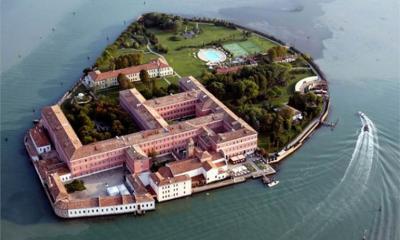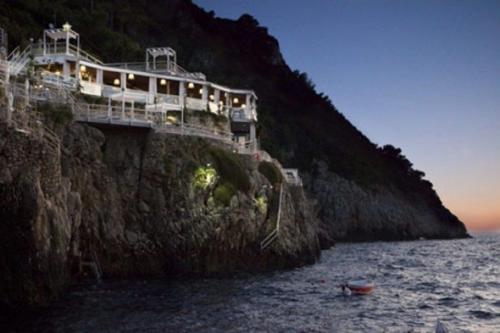Turkish hotel acquisitions boost trade with Italy
ANDREW GARGANO
|
6 November 2013

San Clemente island in the Venice lagoon
ROME - As trade between Italy and Turkey rapidly expands, two recent hotel acquisitions by Turkish companies in Venice and Capri have helped the value of Italo-Turkish trade grow to 16.5 billion euros.
The joint ventures and continually expanding overseas operations of Italian and Turkish companies have led to the two nations becoming among each other's largest trading partners. Turkish companies have now invested over 140 million euros in Italy, while over 1,000 Italian companies have brought their operations to Turkey.
Among the many corporations conducting operations abroad, companies within the tourism sector have grown to play a key role in the development of Italo-Turkish trade, and rightfully so: Italy ranks as the world's fifth best travel destination while Turkey trails closely behind in sixth place. The amount of tourism between the two countries plays a central role in these corporate investments and travel between the two nations is projected to grow. Recent reports estimate that over 800,000 Italians will visit Turkey this year, while over 140,000 Turks will visit the boot-shaped peninsula.
In the past year, several Turkish corporations have taken advantage of these developments, embarking on new tourism ventures in Italy.
The Permak Group, which was founded 35 years ago as a machinery company, recently purchased the island of San Clemente located in the Venice lagoon. The island encompasses 62,000 square metres and holds a luxury five-star resort. The Permak Group believes that remodelling the resort will increase business in the area. Vice-Chairman of the Permak Group, Emir Uyar, has called the acquisition a "strategic investment" and aims to complete restorations "as soon as possible" in order to resume operations in 2014.
In a similar venture, Turkish tourism company the Doğuş Group has invested in the seaside destination of Capri. The group already owns and operates several high-class hotels, and now it has purchased 51 percent of the ownership in the Capri Palace Hotel and Spa. The group, now operating a joint endeavour with an Italian company, intends to boost business and increase tourism in the area.
However the tourism sector is not the only target of the nearly 50 Turkish companies that operate in Italy.
In July, the Toksöz company purchased the 150-year-old Piedmont-based Italian chocolatier Pernigotti. The move was the company's first overseas acquisition and it believes that the purchase of the company, which reaches an average annual sales of 75 million euros, will allow the product to be spread to more global markets. Ahmet Toksöz, a board member of Toksöz, has expressed the company's satisfaction in the acquisition while indicating a positive outlook for the future of the "high-quality" brand.
Italian companies also have made similar investments in the confectionary sector, bringing their operations to Turkey for better product promotion and to create easier access to the Middle East and Asia. In September the Ferrero company, famous for its production of the chocolate-hazelnut spread Nutella, invested 90 million euros in Turkey when it opened a new production plant in the western province of Manisa.
Business continues to flourish in many other sectors between the two countries as well, whether in construction, machinery, or ceramics. In 2011, Turkey's Kale group, which ranks as the world's thirteenth largest ceramic manufacturer, acquired the Italian company Fincuoghi. Fincuoghi produces two of the most prestigious brands of tile in Italy and the Chairman of the Kale Group, Zeynep Bodur Okyay, believes that the acquisition will "accelerate branding."
As Italian and Turkish companies continue to explore opportunities in each other's countries, there is no doubt that business will continue to grow and prove to be beneficial for both the Italian and Turkish economies.

The Capri Palace Hotel and Spa


